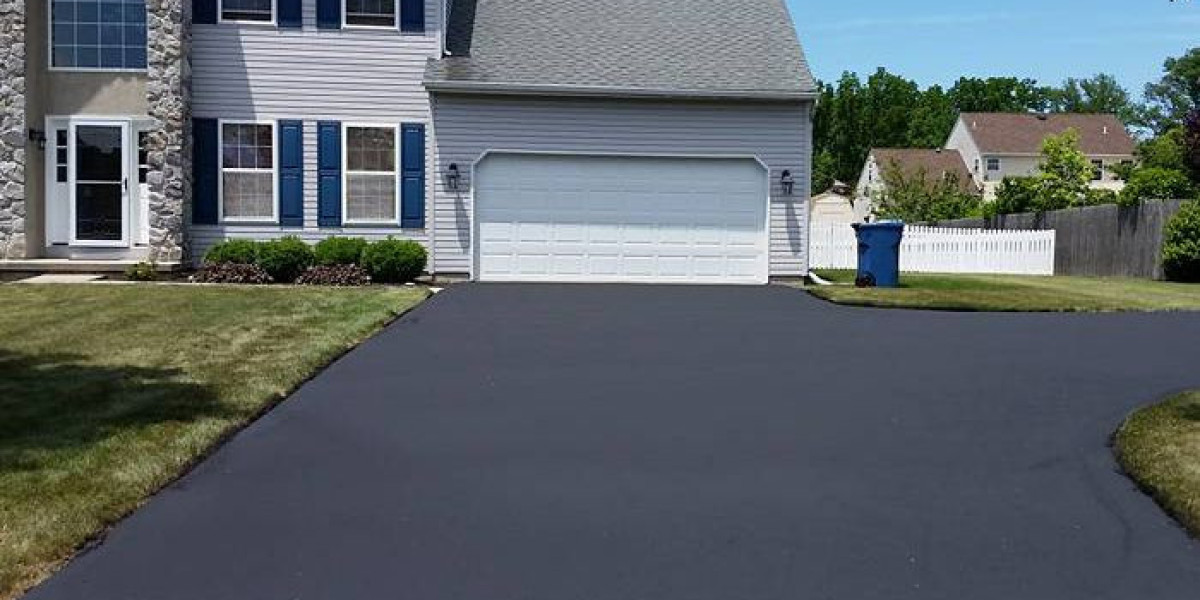Choosing the right driveway material for your property is a decision that will affect the look, functionality, and value of your home. With so many materials available, it can be difficult to determine which one will best suit your needs. Whether you're building a new driveway or replacing an old one, making an informed choice can save you money in the long run and enhance your home's curb appeal.
In this guide, we'll walk you through the key factors to consider when choosing the right driveway material for your property. From budget considerations to long-term durability, we’ll help you make the best decision based on your lifestyle and aesthetic preferences.
Note: If you're located in the Bournemouth area, Driveways in Bournemouth offers expert advice and tailored solutions for homeowners, ensuring you select the right material for your specific requirements.
Consider Your Budget
The first thing you’ll want to do when choosing a driveway material is set a budget. Driveways can range from affordable options like gravel to more expensive materials like paver stones or block paving. Knowing how much you’re willing to spend will help you narrow down your choices and avoid overspending.
Some materials, such as gravel, tend to be more budget-friendly, while others, like natural stone or patterned concrete, may cost more. However, it's important to keep in mind that certain materials may require more maintenance in the long term, which could affect your budget down the road.
Think About Durability and Maintenance
Durability is one of the most important factors when choosing a driveway material. After all, your driveway needs to withstand a variety of weather conditions, heavy traffic, and the wear and tear that comes with daily use. Materials like concrete, tarmac, and block paving are generally known for their durability and long lifespan.
Consider how much maintenance you’re willing to do. Some materials, like gravel or loose stones, may require frequent upkeep to keep them looking neat. On the other hand, materials like concrete or resin-bound driveways are easier to maintain, as they don’t require constant replenishing or shifting.
Assess the Climate in Your Area
Different materials respond differently to the climate in your area, so it's important to choose a material that will perform well in your local weather conditions. For example, if you live in an area with a lot of rain, you’ll want a driveway material with good drainage properties to avoid flooding or pooling water. Permeable options like gravel or permeable block paving are excellent for this purpose.
In colder climates, it’s important to choose a material that can withstand freezing and thawing cycles without cracking or becoming damaged. Tarmac, concrete, and block paving are all good options for colder weather, as they are less likely to crack under freeze-thaw conditions.
Match the Driveway with Your Home’s Style
The material you choose should complement the style and aesthetic of your home. Whether you live in a modern, minimalist house or a traditional cottage, there’s a driveway material that will suit your style. For a sleek, contemporary look, resin-bound or patterned concrete driveways can create a smooth and modern appearance.
On the other hand, if you live in a more rustic or traditional home, you might opt for natural stone, gravel, or block paving, which offer a timeless and classic appearance. Choosing a driveway material that complements your home will create a cohesive look and boost curb appeal.
Consider the Functionality and Usage
Think about how you’ll be using the driveway on a day-to-day basis. Will your driveway be used primarily for parking vehicles, or will it also need to accommodate other activities, such as outdoor gatherings or playing with kids? Some materials, like gravel or cobblestone, might not be ideal if you need a smooth surface for walking or other activities.
Additionally, consider how much traffic your driveway will see. A driveway used by multiple vehicles every day will need a more durable material than one that sees occasional use. For high-traffic driveways, materials like concrete, tarmac, or block paving are ideal choices due to their strength and longevity.
Weigh the Installation Process
Some driveway materials are easier to install than others, which can impact both the timeline and cost of your project. Materials like gravel or asphalt are relatively simple to install and can be done quickly, making them great options if you're looking for a budget-friendly and fast solution.
In contrast, materials like paver stones, block paving, or patterned concrete require a more intricate installation process and may take longer to complete. While these materials may involve a higher initial cost for installation, they often provide a more aesthetically pleasing result and may require less maintenance in the long run.
Check for Drainage Needs
Proper drainage is crucial for preventing water damage and flooding on your driveway. Some materials, like gravel or permeable block paving, are excellent for drainage because they allow rainwater to flow through the surface and into the ground. This helps prevent water from pooling on the driveway, which can cause erosion or damage over time.
If your driveway is prone to water accumulation, you may want to consider a permeable material that can handle heavy rainfall. On the other hand, if your driveway is on a slope or doesn't have proper drainage, you might need to invest in a drainage system to prevent issues with water flow.
Evaluate the Long-Term Investment
When choosing a driveway material, it’s important to think long term. Some materials may have a lower upfront cost, but they may require frequent repairs or replacements. For example, gravel driveways may need to be replenished regularly, and loose stones can shift over time, causing uneven surfaces.
On the other hand, more durable options like concrete, block paving, or resin-bound driveways may have a higher initial cost, but they will likely last longer with less maintenance, making them a better investment in the long run.
Explore Eco-Friendly Options
If environmental sustainability is a priority for you, consider eco-friendly driveway materials. Permeable options like gravel or permeable block paving allow rainwater to seep through the surface, which helps reduce stormwater runoff and supports groundwater recharge.
Recycled materials, such as recycled concrete or asphalt, are also available for environmentally conscious homeowners. These materials offer the benefits of traditional options while reducing the environmental impact of new production.
Get Expert Advice
Choosing the right driveway material can be a complex decision, so don’t hesitate to seek advice from a professional. Experts can help you assess your needs, budget, and climate to recommend the best option for your home.
Conclusion
Selecting the right driveway material is an important decision that requires careful consideration of your budget, style, functionality, and long-term needs. Whether you choose gravel, concrete, block paving, or any other material, it’s essential to choose one that will complement your home and provide lasting value. By weighing all the factors above and seeking professional advice, you can make a well-informed decision that enhances your property for years to come.








